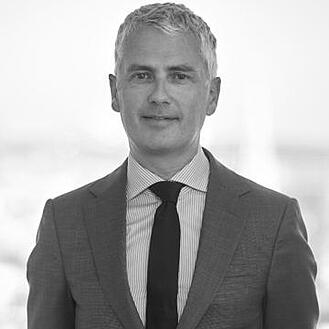Key Takeaways From LFJ’s Podcast With Erik Bomans, CEO and Executive Board Member of Deminor

 Public
Public
Third-party litigation funding has become a durable and sophisticated feature of U.S. patent disputes, fundamentally reshaping how cases are filed, litigated, and settled.
As reported by Financier Worldwide, R. David Donoghue of Holland & Knight examines how the growing presence of litigation funders in patent cases is altering the strategic landscape for both plaintiffs and defendants. The article notes a sustained, multi-year trend toward larger capital pools, more sophisticated funders, and broader reliance on portfolio-based enforcement structures, particularly in high-filing districts like Delaware and Eastern and Western Texas.
Funded plaintiffs, Donoghue writes, tend to bring more carefully vetted cases. Funders conduct rigorous pre-filing due diligence that often exceeds Rule 11 standards, meaning defendants are less likely to encounter speculative claims and more likely to face adversaries with defensible damages models and clear recovery paths. Non-recourse capital also gives funded plaintiffs extended staying power, enabling multitrack strategies that reduce the effectiveness of traditional cost-based litigation leverage.
Courts are responding with increased scrutiny. Judges are more frequently requiring disclosure of funder identities, financial interests, and control rights. Discovery into funding arrangements may be permitted when relevant to questions of bias, standing, or valuation.
For defense teams, Donoghue recommends early identification of claim weaknesses, targeted disclosure motions, rigorous damages discipline, and data-driven settlement proposals calibrated to litigation milestones rather than nuisance value. The article underscores that while funding does not necessarily increase frivolous filings, it does extend the duration and intensity of patent disputes.
A veteran litigator turned legal finance professional is challenging what she calls the biggest misconception about the industry: that litigation funding is only for companies that cannot afford their legal bills.
As reported by Burford Capital, Director Stephanie Southwick — who spent more than 15 years as a first-chair commercial and intellectual property litigator before joining the firm seven years ago — argues that the real question for potential clients is not whether they can pay, but whether litigation spending represents the best use of capital. Even financially strong organizations, she says, benefit from preserving operational funds and converting legal expenses into monetizable assets.
Southwick emphasizes that trust and alignment between funder and client are essential for a successful funding arrangement, describing the ideal relationship as a strategic partnership rather than a purely transactional one. She also highlights the value of legal finance for startups, noting that it provides non-dilutive capital that allows founders to pursue meritorious claims without reducing runway or diluting equity.
For companies considering litigation financing, Southwick advises disciplined damages analysis and realistic budgeting from the outset. Early involvement of financing partners, she says, helps calibrate the structure and economics of an arrangement before litigation costs begin to accumulate.
Louisiana's insurance regulator is taking aim at third-party litigation funding marketing campaigns it says mislead consumers through deceptive digital advertising tactics.
As reported by Beinsure Media, the Louisiana Department of Insurance has partnered with the National Insurance Crime Bureau and 4WARN, a digital intelligence firm, to identify and combat TPLF-related paid search advertising that intercepts policyholders seeking claims assistance. Regulators allege that some campaigns create confusion about whether communications originate from insurers themselves.
The partnership follows a joint NICB and 4WARN report finding that TPLF organizations spent approximately $380 million on paid online search advertising between June 2024 and June 2025. According to regulators, some third-party marketers steer claimants toward litigation before they have an opportunity to contact their insurers directly, extending dispute timelines and increasing costs within the claims ecosystem.
The Louisiana Department of Insurance is advising policyholders to use verified sources, including the department's official website and mobile app, and to verify search result links before clicking.
The initiative marks the first coordinated regulatory effort specifically targeting TPLF digital marketing tactics, signaling a potential new front in the ongoing debate over litigation funding regulation at the state level.